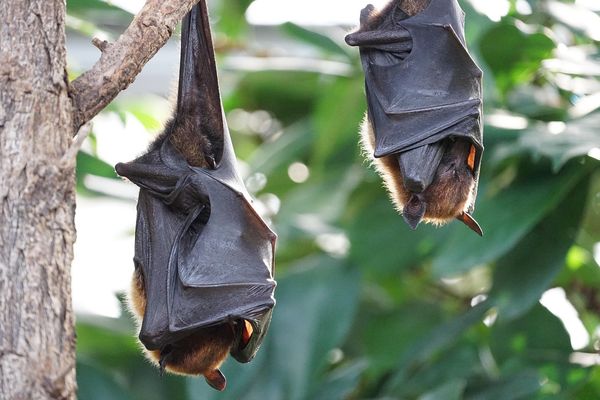
By Srinivas Mazumdaru
Sri Lanka is currently experiencing the worst economic turmoil in its independent history, staring at surging inflation, staggering levels of debt, and empty foreign exchange reserves, which have resulted in crippling shortages of essential items such as food and medicine.
Regional heavyweights India and China, both vying for influence in the island nation, have been quick to offer help.
New Delhi has so far given about US$1.5 billion (€1.47 billion) to Colombo for funding imports of food, fuel, medicines and fertilizers. It has also provided another US$3.8 billion in assistance in the form of currency swaps and credit lines.
Beijing, for its part, is providing some 500 million yuan (US$75 million, €73.35 million) in humanitarian aid and has promised to “play a positive role” in Sri Lanka’s talks with the International Monetary Fund (IMF).
But China has yet to respond to Colombo’s appeal for debt relief.
Beijing funds Colombo’s infrastructure drive
Sri Lanka — with its strategic location at the crossroads of busy shipping routes linking Asia to Africa and Europe — has become an arena of geopolitical rivalry and maritime competition between India and China in recent years.
India and Sri Lanka share not only close trade relations, but also ethnic and religious ties.
But under the leadership of ousted President Gotabaya Rajapaksa and his elder brother Mahinda Rajapaksa, who served as president from 2005 to 2015, Beijing had appeared to gain sway in Colombo at the expense of New Delhi. China emerged as Sri Lanka’s biggest trade partner and one of its largest creditors, accounting for about 10% of the country’s entire foreign debt of about US$51 billion.
When Sri Lanka embarked on a massive infrastructure drive after the end of a decades-long civil war in 2009, China pumped money into the country, funding roads, ports, and airports for example.
Sri Lanka also emerged as a vital node in the Maritime Silk Road, under Beijing’s Belt and Road Initiative.
Accusations of ‘debt trap’ diplomacy
China’s closer ties with Sri Lanka have unsettled India, traditionally Colombo’s closest economic and political partner.
But not all the collaboration has turned out to be financially viable, particularly the debt-financed mega projects like the Hambantota port and the Mattala Rajapaksa International Airport.

In 2017, Colombo had to hand over the Hambantota port and thousands of acres of surrounding land to Beijing for 99 years, triggering accusation that China engaged in a “debt trap” diplomacy to gain influence and control over key assets in the country.
“My field research last year found that China has gained a considerable footprint on the island’s foreign policy through infrastructure diplomacy,” said Asanga Abeyagoonasekera, a political and security analyst from Sri Lanka.
“There are concerns regarding Chinese projects due to opaqueness, lack of transparency, and high-interest rates for Chinese loans,” he stressed, adding that the Chinese offered loans at considerably higher rates than other lenders.
“We have borrowed at 6.4% from China while Japanese loans were less than 1% interest rate,” he said.
Sumit Ganguly, a South Asia expert and professor of political science at Indiana University Bloomington in the United States, shared a similar view. “The shiny infrastructural projects that were built on the basis of Chinese loans have proven to be castles of sand,” he said.
‘Rumors spread by Western countries’
But Xiaoxue Liu, an associate research fellow at the National Institute of International Strategy in China, said that allegations that China’s Belt and Road initiative had dragged Sri Lanka into the current hardship were “rumors spread by Western countries.”
According to her, most of Sri Lanka’s foreign debts were caused by the large amount of commercial loans that the country had taken out over the last few years. “These loans are the key factors that caused Sri Lanka’s dire economic situation,” she said.
Nevertheless, with the current economic crisis and the general perception of Beijing’s culpability, as well as China’s apparent reluctance to write off Sri Lanka’s debt, either partly or in full, India is eyeing up the chance to regain lost ground and consolidate its position as Colombo’s primary partner.
“India sees this crisis as an opportunity. It has moved quite deftly to assist Sri Lanka with supplies of fuel, medicine, and loans,” said Ganguly.
“There are, obviously, limits to India’s generosity owing to its own needs. However, given the significance that New Delhi attaches to its neighbor and its fears of Chinese influence in the country it is acting with alacrity,” he underlined.
Over the past few months, India has managed to wrest control of some Chinese projects in Sri Lanka.
In March, New Delhi inked a deal to set up hybrid power projects on islands in northern Sri Lanka, after China said in December that it was suspending its plans to build plants on three islands due to security issues. In the same month, Colombo also scrapped an agreement with a Chinese firm to build a US$12 million wind farm in the country, and instead offered the project to an Indian rival.
These decisions came after Sri Lankan authorities allowed India to proceed with a long-delayed project to jointly redevelop a strategic oil terminal along the island nation’s eastern coastline.

“India’s policy toward Sri Lanka is not based on a reaction to China. It is historical and based on people-to-people contacts with shared culture. If you look at Indian investments in Sri Lanka, they are people-centric,” said Smruti Pattanaik, a foreign policy research fellow at the Institute for Defense Studies and Analyses (IDSA) in New Delhi.
Recalibrating Sri Lanka’s foreign policy
Despite India appearing to regain lost ground, all is not well as anti-Indian sentiments still persist among sections of the Sri Lankan population, given suspicions and fears about Indian hegemony.
On Wednesday, Sri Lanka’s Parliament elected acting President Ranil Wickremesinghe — who has served as prime minister several times before and is seen to be pro-India — as president after Gotabaya Rajapaksa fled the country and tendered his resignation last week.
Abeyagoonasekera said that the next government should recalibrate the nation’s foreign policy and make it more balanced and with less of a pro-China tilt than witnessed under Rajapaksa.
“As an island nation, we have supported international norms and values for a rules-based order in the Indian Ocean. We should keep supporting in this direction to be a partner with our like-minded partners.”
Liu, meanwhile, insisted that China had no intention to compete with India in Sri Lanka, as Beijing’s main goal was to develop economic programs that would benefit both China and Sri Lanka.
“It’s clear to us how close Sri Lanka is to India geographically while how far away it is from China,” she said. “China knows it can’t compete with India for influence in Sri Lanka, but if that’s how India wants to view the situation, China can’t stop them from doing so.”
William Yang from Taipei contributed to this article.
Edited by: Shamil Shams
READ NEXT: Dignity at the Margins: Exploring Kosovo Through a Taiwanese Lens
This article was originally published on Deutsche Welle. Read the original article here.
TNL Editor: Bryan Chou (@thenewslensintl)
If you enjoyed this article and want to receive more story updates in your news feed, please be sure to follow our Facebook.







